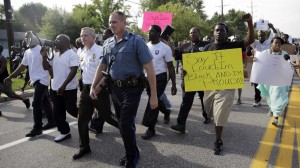Ferguson Decision

On November 24, 2014, a St. Louis Grand Jury reached a decision concerning the case of Darren Wilson, a white police officer who shot and killed Michael Brown, an unarmed black teenager. Out of the three possible charges- murder, voluntary manslaughter, and involuntary manslaughter – they did not indict Darren Wilson, saying that his actions were reasonable under the law.
However, when the St. Louis county released transcripts of the proceedings, it seldom helped. Witness accounts contradicted each other, police statements modified, and conflicting autopsies only created a more confused audience.
Wilson claimed to have acted in self-defense, saying that he was, “afraid of a blow to the face that would knock him out, or that Brown would take his gun and shoot him.” Other eyewitness accounts claimed that Wilson kept shooting, even after Brown had hit the ground.
The nation had an uproar when many heard of the final decision. It became a worldwide trending topic on twitter, bringing awareness to not only racism, but also of how many officers are let off because their actions are “justifiable while in the line of duty.” Violent protests, as well as calm ones, popped up all over the country. Protestors wanted to fight the decision, and the unusual process in which Darren Wilson was tested. Also, the unclear details and contradicting witness accounts sparked distrust in the public.
Until now, protests are still happening and Darren Wilson has resigned from the Ferguson Police Force.





